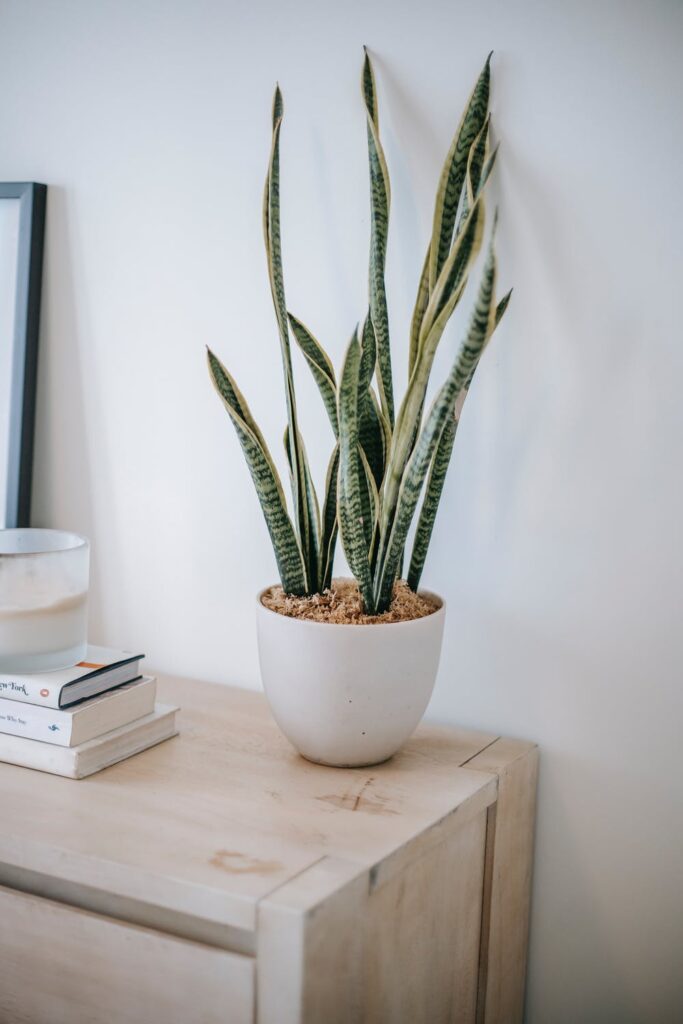
5 Houseplants to Heal Your Skin
Houseplants are having a moment. While we’ve all been trying to bring the outside in as much as possible during quarantine — and a chilly winter — our skin has been the unexpected winner of the fringe benefits of having these colorful pops of nature in our homes.

Our homes are often brimming with air pollutants; think chemicals from cleaning products, dust, pet hair and more. These pollutants might lead to premature signs of aging and dull, dry skin.
Our skin is not only the largest organ in our body but it is also a major player in our body’s detoxification process. Plants help reduce the toxins in our body — which means it doesn’t have to work as hard to detox. Houseplants also add moisture to the air, helping to keep our skin hydrated, which is vital to skin health. (Learn more about keeping your home healthy this winter.)
But houseplants aren’t just good for purifying the air — they can provide stress relief; increase oxygen in the air and humidity levels; and reduce carbon dioxide and airborne dust levels.
Sold on adding a few green dreams to your home? Here are some of the houseplants we love for their health benefits and natural beauty:
- *Snake Plant: The snake plant is one of the best air purifying plants. While most plants take away oxygen at night for their own use, snake plants give off oxygen at night — which makes them great air purifiers and ultra-beneficial to your beauty sleep. While people often associate air purification with foliage plants, embedded in the expansive, upright fronds of the snake plant are tiny pores that take in and expel gasses (almost like breathing). Plus, they’re super hard to kill. We’re in!

- Peace Lilies: While most well known for their gorgeous white flowers (which bloom in the summer), peace lilies are pretty and powerful houseplants. In fact, peace lilies can improve your indoor air quality by as much as 60 percent. These stunners absorb ammonia, benzene, xylene, formaldehyde and trichloroethylene — and help to reduce the levels of mold spores that grow in the home by absorbing those spores through their leaves and circulating them to the plant’s roots where they are used as food. In bathrooms, the peace lily can help to keep shower tiles and curtains free from mildew, and the plant can absorb harmful vapors from alcohol and acetone. Why not give peace (lilies) a chance?

- Aloe Vera: Aloe vera contains both antioxidant and anti-inflammatory properties that are ideal for skin-related conditions. And the gel that aloe vera plants produce is especially useful for wound healing, treating burns and relieving the itch of psoriasis. You can cut the leaves open and use the gel for any number of ailments, including dry skin, sunburn and rashes. Because the gel is so soothing, it provides instant relief to the skin and helps quench dry skin. Apply the gel directly to your skin for relief of rough patches caused by our harsh winter weather.

- Rubber Plant: Rubber plants are great at purifying indoor air because they not only absorb airborne chemicals but break them down, which helps reduce indoor toxin exposure. Plus, fighting off mold and bacteria is part of the plant’s defense mechanism to protect its soil. For those who are finicky about the look of their plants, there is a huge variety of rubber plants available to complement your home — all of which have gorgeous, glossy leaves.

- *Dracaena: Want to add a bit of the tropics to your home? This palm-like houseplant is one of the most efficient plants at removing formaldehyde from the air. And that’s not the only carcinogen it wards off — dracaena can minimize the effects of benzene, trichloroethylene and xylene. If dry, winter air is your biggest concern, strategically place a few dracaena in your driest rooms to increase the humidity levels.

Have questions about mastering your skin health this winter and beyond? Contact us today for a personalized consultation with one of our A360 clinical aestheticians.
*Snake plants and Dracaena might be toxic to pets and children. Proceed with caution before adding them to your arsenal of skin-soothing plants.


